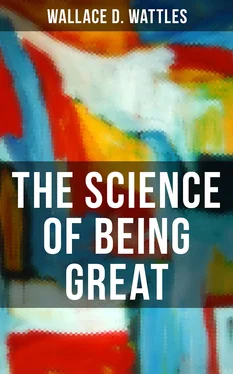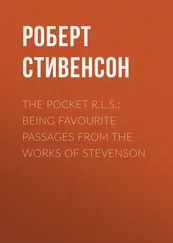Heredity counts for something. We are born with subconscious mental tendencies; as, for instance, a tendency to melancholy, or cowardice, or to ill temper; but all these subconscious tendencies may be overcome. When the real man awakens and comes forth he can throw them off very easily. Nothing of this kind need keep you down; if you have inherited undesirable mental tendencies, you can eliminate them and put desirable tendencies in their places. An inherited mental trait is a habit of thought of your father or mother impressed upon your subconscious mind; you can substitute the opposite impression by forming the opposite habit of thought. You can substitute a habit of cheerfulness for a tendency to despondency; you can overcome cowardice or ill temper.
Heredity may count for something, too, in an inherited conformation of the skull. There is something in phrenology, if not as much as its exponents claim; it is true that the different faculties are localized in the brain, and that the power of a faculty depends upon the number of active brain cells in its area. A faculty whose brain area is large is likely to act with more power than one whose cranial section is small; hence persons with certain conformations of the skull show talent as musicians, orators, mechanics, and so on. It has been argued from this that a man’s cranial formation must, to a great extent, decide his station in life, but this is an error. It has been found that a small brain section, with many fine and active cells, gives as powerful expression to faculty as a larger brain with coarser cells; and it has been found that by turning the Principle of Power into any section of the brain, with the will and purpose to develop a particular talent, the brain cells may be multiplied indefinitely.
Any faculty, power, or talent you possess, no matter how small or rudimentary, may be increased; you can multiply the brain cells in this particular area until it acts as powerfully as you wish. It is true that you can act most easily through those faculties that are now most largely developed; you can do, with the least effort, the things which “come naturally”; but it is also true that if you will make the necessary effort you can develop any talent. You can do what you desire to do and become what you want to be. When you fix upon some ideal and proceed as hereinafter directed, all the power of your being is turned into the faculties required in the realization of that ideal; more blood and nerve force go to the corresponding sections of the brain, and the cells are quickened, increased, and multiplied in number. The proper use of the mind of man will build a brain capable of doing what the mind wants to do.
The brain does not make the man; the man makes the brain. Your place in life is not fixed by heredity. Nor are you condemned to the lower levels by circumstances or lack of opportunity. The Principle of Power in man is sufficient for all the requirements of his soul. No possible combination of circumstances can keep him down, if he makes his personal attitude right and determines to rise. The power, which formed man and purposed him for growth, also controls the circumstances of society, industry, and government; and this power is never divided against itself. The power which is in you is in the things around you, and when you begin to move forward, the things will arrange themselves for your advantage, as described in later chapters of this book.
Man was formed for growth, and all things external were designed to promote his growth. No sooner does a man awaken his soul and enter on the advancing way than he finds that not only is God for him, but nature, society, and his fellow men are for him also; and all things work together for his good if he obeys the law. Poverty is no bar to greatness, for poverty can always be removed. Martin Luther, as a child, sang in the streets for bread. Linnaeus the naturalist had only forty dollars with which to educate himself; he mended his own shoes and often had to beg meals from his friends. Hugh Miller, apprenticed to a stonemason, began to study geology in a quarry. George Stephenson, inventor of the locomotive engine, and one of the greatest of civil engineers, was a coal miner, working in a mine, when he awakened and began to think. James Watt was a sickly child, and was not strong enough to be sent to school. Abraham Lincoln was a poor boy. In each of these cases we see a Principle of Power in the man that lifts him above all opposition and adversity.
There is a Principle of Power in you; if you use it and apply it in a certain way you can overcome all heredity, and master all circumstances and conditions and become a great and powerful personality.
Table of Contents
MAN’S brain, body, mind, faculties, and talents are the mere instruments he uses in demonstrating greatness; in themselves they do not make him great. A man may have a large brain and a good mind, strong faculties, and brilliant talents, and yet he is not a great man unless he uses all these in a great way. That quality which enables man to use his abilities in a great way makes him great; and to that quality we give the name of wisdom. Wisdom is the essential basis of greatness.
Wisdom is the power to perceive the best ends to aim at and the best means for reaching those ends. It is the power to perceive the right thing to do. The man who is wise enough to know the right thing to do, who is good enough to wish to do only the right thing, and who is able and strong enough to do the right thing is a truly great man. He will instantly become marked as a personality of power in any community and men will delight to do him honor.
Wisdom is dependent upon knowledge. Where there is complete ignorance there can be no wisdom, no knowledge of the right thing to do. Man’s knowledge is comparatively limited and so his wisdom must be small, unless he can connect his mind with knowledge greater than his own and draw from it, by inspiration, the wisdom that his own limitations deny him. This he can do; this is what the really great men and women have done. Man’s knowledge is limited and uncertain; therefore he cannot have wisdom in himself.
Only God knows all truth; therefore only God can have real wisdom or the right thing to do at all times, and man can receive wisdom from God. I proceed to give an illustration: Abraham Lincoln had limited education; but he had the power to perceive truth. In Lincoln we see pre-eminently apparent the fact that real wisdom consists in knowing the right thing to do at all times and under all circumstances; in having the will to do the right thing, and in having talent and ability enough to be competent and able to do the right thing.
Back in the days of the abolition agitation, and during the compromise period, when all other men were more or less confused as to what was right or as to what ought to be done, Lincoln was never uncertain. He saw through the superficial arguments of the pro-slavery men; he saw, also, the impracticability and fanaticism of the abolitionists; he saw the right ends to aim at and he saw the best means to attain those ends. It was because men recognized that he perceived truth and knew the right thing to do that they made him president. Any man who develops the power to perceive truth, and who can show that he always knows the right thing to do and that he can be trusted to do the right thing, will be honored and advanced; the whole world is looking eagerly for such men.
When Lincoln became president he was surrounded by a multitude of so-called able advisers, hardly any two of whom were agreed. At times they were all opposed to his policies; at times almost the whole North was opposed to what he proposed to do. But he saw the truth when others were misled by appearances; his judgment was seldom or never wrong. He was at once the ablest statesman and the best soldier of the period. Where did he, a comparatively unlearned man, get this wisdom? It was not due to some peculiar formation of his skull or to some fineness of texture of his brain. It was not due to some physical characteristic. It was not even a quality of mind due to superior reasoning power.
Читать дальше












